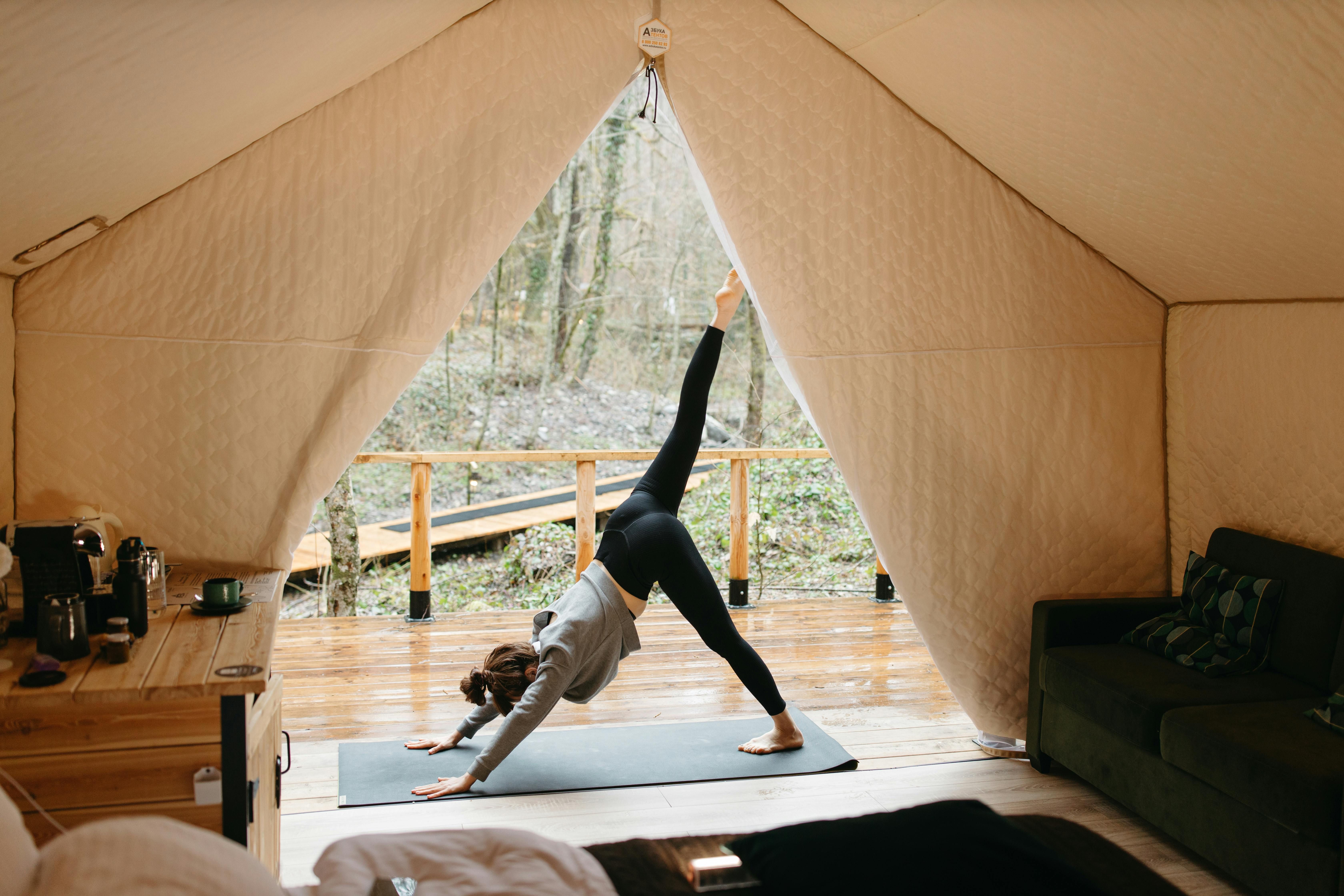
CBT for Women’s Sexual Health: Tackling Anxiety, Body Image, and Intimacy Issues
Sexual health is a critical component of overall well-being, but many women face challenges related to intimacy, body image, and anxiety that can affe...

In a world that often prioritizes connectivity and being constantly “on,” solitude—time spent alone—can seem like an overlooked luxury. But solitude, far from being a sign of loneliness or isolation, offers incredible benefits for women, especially when it comes to nurturing creativity, finding emotional clarity, and enhancing self-discovery.
Let’s explore how intentional solitude can be an empowering tool for women to reclaim space for their mental and emotional health, supported by evidence-based research.

Creativity often thrives in solitude. Away from the distractions of daily life and social interactions, solitude allows the mind to wander freely, tapping into deeper levels of thought and inspiration.
Studies show that people, including women, generate more creative ideas when they are alone versus when they are in group settings. Research published by the University of Arizona found that individuals working solo tend to think more divergently, coming up with more original ideas, as they aren’t influenced or limited by the opinions of others. For women, who may face societal pressures to conform, solitude provides a space to tap into authentic, unfiltered creativity.
Some of the most creative women throughout history—like Virginia Woolf, who famously advocated for “a room of one’s own”—have relied on solitude to foster their best work. Taking time alone can offer that quiet moment of inspiration, where ideas can be nurtured without outside noise.
In our hyperconnected society, it’s easy to become overwhelmed with the demands of work, family, and social life. Solitude offers the opportunity for emotional clarity, allowing women to process thoughts, feelings, and life decisions without the distraction of others’ needs or expectations.
According to a study published in Cognitive Therapy and Research, spending time in solitude can reduce emotional overload, making it easier to regulate emotions and deal with stress. Time alone offers space to process feelings and experiences in a more deliberate way. This reflective time allows women to ask important questions: What do I need right now? What emotions have I been avoiding? By stepping away from the pressures of everyday life, women can tune into their emotional needs more effectively.
Solitude can also encourage mindfulness, which has been shown to reduce anxiety and depression. A report in The International Journal of Environmental Research and Public Health concluded that solitude allows individuals to develop self-awareness, leading to better decision-making and emotional resilience. For women, who may often prioritize others’ needs before their own, solitude can create a space to realign with personal values and goals.
Solitude is not just about creativity and emotional clarity; it’s also an opportunity for deep self-discovery. When women carve out time to be alone, they can reconnect with their core selves, explore personal interests, and grow in self-confidence.
Research from Journal for the Theory of Social Behaviour shows that solitude is crucial for personal development and independence, particularly for women. Spending time alone fosters a sense of self-reliance, enabling women to make decisions based on their own needs and desires rather than external influences.
For many women, solitude creates the perfect space to rediscover forgotten passions or hobbies. Whether it’s reading, painting, or exploring new interests, these moments of introspection provide insight into what truly brings joy.
A report published in Psychology Today found that solitude strengthens intuition—that gut feeling or inner voice that helps women make decisions. By spending time alone, women can attune to their instincts, making it easier to trust themselves in both personal and professional life.

Solitude doesn’t have to mean isolation. It’s about finding a balance that allows for restorative alone time while maintaining healthy social connections. Here are a few practical tips for integrating solitude into your life:
Set aside a specific time each day or week for solitude. Whether it’s a walk in nature, a quiet morning with a cup of tea, or a weekend of unplugging from technology, this time is sacred for recharging.
Use moments of solitude to practice mindfulness or meditation. This can help deepen emotional clarity and foster a greater connection with your inner self.
Develop a ritual around your alone time that makes it feel intentional and enjoyable. This could be journaling, reading, or engaging in a hobby that you love. The key is to make solitude a positive, nurturing experience.
Q: How can solitude benefit women in a hyperconnected world?
A: Solitude allows women to take a step back from constant connectivity, offering space for emotional clarity, creativity, and self-discovery. Research shows that time spent alone can reduce stress, improve emotional regulation, and foster a deeper understanding of personal goals and desires.
Q: Is solitude the same as isolation?
A: No, solitude is a conscious choice to spend time alone to recharge, reflect, or focus on personal growth. Isolation, on the other hand, is often associated with loneliness or being cut off from social connections. Solitude is empowering and restorative, while isolation can negatively impact mental health.
Q: Can solitude improve creativity?
A: Yes, solitude can significantly boost creativity. Studies published in Personality and Social Psychology Bulletinfound that individuals working alone often think more divergently, generating unique ideas without the influence of others. For women, solitude provides the freedom to explore creative pursuits without external distractions.
Q: How can solitude help with emotional clarity?
A: Solitude offers a chance for women to process emotions away from the pressures of daily life. It reduces emotional overload and allows time for reflection, which can lead to better emotional regulation and decision-making. Research suggests that solitude can also improve self-awareness and reduce anxiety.
Q: How can I incorporate solitude into my daily life without feeling disconnected?
A: You can start small by scheduling “me time” for activities like journaling, meditation, or walking in nature. The goal is to find moments of intentional solitude that recharge you, without isolating yourself from social support. Balancing solitude with meaningful connections is key to maintaining mental health.
The information provided in this article is intended for educational purposes only and does not constitute medical, psychological, or therapeutic advice. Always consult with a healthcare professional or licensed therapist before making decisions related to your mental health or well-being. While solitude can offer numerous benefits for creativity and emotional clarity, individual experiences may vary. If feelings of isolation or loneliness arise, it is important to seek professional support.
In a world that values constant connectivity, solitude can often feel like a rebellion—a bold statement of self-care and empowerment. For women, taking time to be alone isn’t just about recharging; it’s about reclaiming space for creativity, emotional clarity, and self-discovery. The evidence is clear: solitude provides a powerful platform for personal growth and well-being.
Takeaway: Solitude is an essential part of nurturing your mental and emotional health. It’s not about disconnecting from others but about reconnecting with yourself. So, the next time you feel overwhelmed or creatively blocked, consider carving out some alone time—you might just find that solitude is the secret to unlocking your fullest potential.
Embrace it: Whether it’s five minutes or a full day, solitude is a gift to yourself. Take the time to enjoy your own company, and let it fuel your creativity, emotional clarity, and personal growth.

Sexual health is a critical component of overall well-being, but many women face challenges related to intimacy, body image, and anxiety that can affe...

Cognitive Behavioral Therapy (CBT) is a powerful, evidence-based treatment widely used to address issues like depression, anxiety, and stress. But whe...

Let's cozy up for a candid chat about a subject that touches many yet often lingers in the shadows - weight discrimination. This isn't just a heart-to...

The connection between what we eat and how we feel is powerful—certain foods provide the nutrients our brain needs to support mood, energy, and overal...

For women with ADHD, navigating relationships—whether romantic or platonic—can present unique challenges. ADHD symptoms like distraction, impulsivity,...